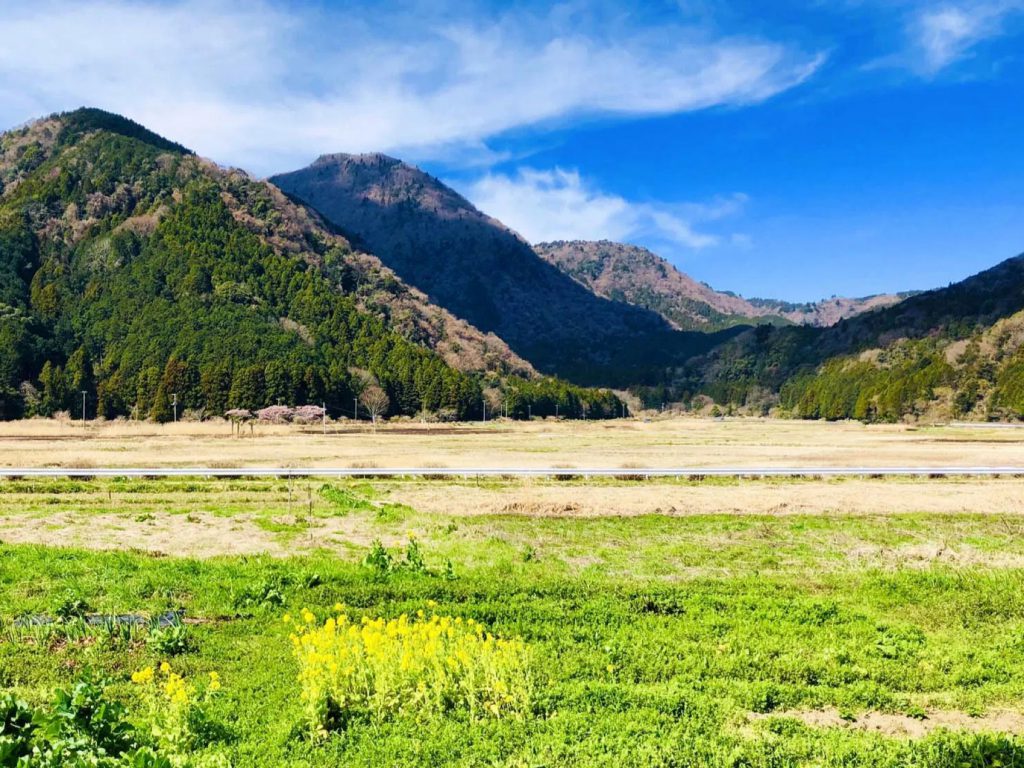
People say “Happiness dwells over the mountain far to wander “
Alas, and I went in the crowd of the others
I came back with my eyes wet
People say “Happiness dwells over themountains far,
far away over there.”
Needless to say, it is Carl Hermann Busse’s “Over the Mountains “. This poem, recorded in Bin Ueda’s “Kaicho-on” has been far more popular in Japan than in Carl Hermann Busse’s homeland Germany. I think it depends largely on the translation of Bin Ueda. The words chosen as Shichigocho captured the hearts of the Japanese people. The admiration for the traditional Japanese wandering poet, followed by Noin Houshi, Saigyo, and Matsuo Basho, and the emptiness drawn from the impermanence shook my heart. When I go on a trip alone, when I come across a scene like the one in the picture, I think of this poem and another one, “How many mountains and rivers I need to cross Before I get to a land where loneliness never prevails? I’m prepared for this journey just as I was yesterday”. This tanka by Bokusui Wakayama is also a poem inspired by “Over the Mountains”.
山のあなたの空遠く
「幸(さいわい)」住むと人のいふ
臆(ああ)、われひとと尋(と)めゆきて
涙さしぐみかへりきぬ
山のあなたになお空遠く
「幸」住むと人のいふ
言わずと知れたカール・ブッセの「山のあなた」です。上田敏の『海潮音』に収録されたこの詩はカール・ブッセの祖国ドイツよりも日本の方がはるかに人口に膾炙しました。ひとえに上田敏の名訳に依るところが大きいと思います。七五調と選ばれた言葉が日本人の心を深く捉えました。能因法師、西行、松尾芭蕉と続く日本の伝統的な漂白詩人に対する憧れと、無常観から引き出された虚しさが胸を揺するのです。ひとり旅に出た時、写真の様な光景に出くわした時に浮かぶのがこの詩と、もうひとつ「幾山河越えさり行かば寂しさの終てなむ国ぞ今日も旅ゆく」です。若山牧水のこの短歌も「山のあなた」に触発されて生まれた詩です。
